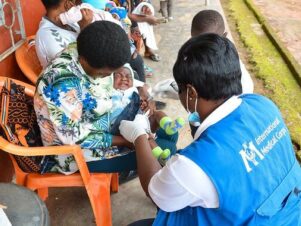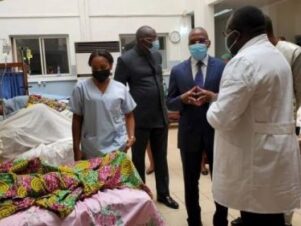Sexually active people can get chlamydia, a common and treatable sexually transmitted disease (STD). This article by our health experts will answer the most frequently asked questions about chlamydia Symptoms and causes.
What about chlamydia?
Chlamydia is a familiar sexually transmitted disease that causes infections in both women and men. This can permanently damage the female reproductive system. This can make future pregnancies impossible or difficult. Chlamydia can equally result to a life-threatening ectopic pregnancy (pregnancy that happens out of the uterus).
What about chlamydia transmission?
The main ways chlamydia infection is transmitted includes unprotected sex or some other barrier forms and oral sex without protection. There doesn't have to be penetration to get chlamydia. The bacteria can be transmitted simply through touching the genitals together. Anal sex can also transmit chlamydia.
During delivery newborns can contract chlamydia from their mothers. You can do a double check with your health care provider at your first prenatal check even though most prenatal tests include a chlamydia test. Through genital or oral contact with the eye, Chlamydia infection of the eye can occur but this is rare.
Someone who has had a previous infection can still spread chlamydia even if they were successfully treated.
How to reduce the risk of chlamydia?
Not having oral, vaginal, or anal sex is the only way to totally avoid sexually transmitted diseases. The following things can lower the risk of you contracting chlamydia if you are sexually active:
- Use protection correctly each time you have sex.
- Being in a long-term monogamous relationship with a partner who does not have chlamydia and has been tested.
Chlamydia symptoms
Most people with chlamydia don't know they have it since they don't notice any symptoms.
You may experience the following if you have symptoms:
- In men, swelling and pain in the testicles
- In women bleeding between periods, abdominal pain and bleeding after intercourse.
- Unusual fluid discharge from the buttocks, vagina or penis.
- Pains in urinating
If you have symptoms of chlamydia, think you are at risk of having STI (sexually transmitted infection) talk to your doctor or a community birth control service to get tested.
Contact us at Bigmanlab contact page to request for chlamydia testing.
Causes of chlamydia
The bacteria that causes this STI is chlamydia trachomatis, and is most commonly spread through unprotected anal, oral, or vaginal intercourse. It is obtained it from an infected person’s vaginal or seminal fluids. Also through genital contact, chlamydia can equally be spread from one infected person to another, even if you don't have sex. During childbirth, a pregnant women can pass it to their unborn child.
Chlamydia risk factors
Some chlamydia risk factors for infection are:
- Having a history of other sexually transmitted diseases or chlamydia.
- Inconsistent use of barrier methods such as condoms with new sexual partners
- Having a sexual partner who has multiple other sex partners.
Chlamydia complications
Chlamydia trachomatis the bacteria that causes chlamydia may be associated with:
Inflammation of the epididymis (Infection near the testicles):
The coiled tube next to each testicle (epididymis) can be inflamed by a chlamydia infection. This infection can cause swelling, pain in the scrotum, and fever.
Pelvic inflammatory disease:
This disease causes fever and pelvic pain and is an infection of the fallopian tubes and uterus. Serious infections may require hospitalization to receive intravenous antibiotics. Pelvic inflammatory disease can damage the cervix, uterus and ovaries including the fallopian tubes.
Newborn infections:
During delivery, chlamydia infection can be transmitted from the birth canal to the baby and result to a severe eye infection or pneumonia.
Infection of the prostate gland:
Chlamydia bacteria rarely can spread to the male prostate gland. Prostatitis can result to pain after or during intercourse, and back pain, painful urination, chills and fever.
Reactive arthritis:
Increased risk of developing or reactive arthritis can be seen in people with chlamydia bacterium. This condition usually affects the urethra, the tube that carries urine from the bladder to the outside of the body, joints and eyes.
Ectopic pregnancy:
It occurs usually in the fallopian tube when a fertilized egg implants and grows outside of the womb. To avoid life-threatening complications like tubal rupture, the pregnancy must be terminated. This risk is increased by chlamydia infection.
Infertility:
Even without any symptoms or signs can cause blockage of the fallopian tubes and scarring, which can lead to infertility in women.
What about chlamydia testing?
Chlamydia testing is done with a swab or urinalysis.
A physical exam by a nurse or doctor is not always necessary.
You can equally get a confidential chlamydia test at bigmanlab, a general practitioner's office, sexual health clinic, or genitourinary medicine clinic.
In Cameroon, you may be offered a chlamydia test if you visit some health services, for instance bigmanlab, if you are a woman under the age of 25.
For sexually active woman under the age of 25 in Cameroon, we recommend getting tested for chlamydia when you have sex with a regular or new or partner and once a year and.
If you are a sexually active male, and under 25 in Cameroon, we recommend that you get tested for chlamydia once a year if you are not using a protection with a regular or new partner.
You can equally buy a home chlamydia test kit.
Treatment for chlamydia
Chlamydia can be treated. Doctors can treat chlamydia with antibiotics since it is a bacterial infection. Your health care provider will prescribe an oral antibiotic if you have chlamydia, usually doxycycline or azithromycin (Zithromax). To prevent reinfection and further spread of chlamydia we at bigmanlab will equally advise your partner to seek treatment.
Chlamydia prevention
Abstaining form sexual activity is the surest way to prevent chlamydia. In short, you can:
Limit the number of sexual partners you have: Having multiple sexual partners puts you at higher risk for chlamydia and other sexually transmitted infections.
Use condom:
Every time you have sexual contact, use a polyurethane female condom or a latex male condom. Correctly using condoms in all sexual relations, reduce the risk of infection, but do not eliminate it.
Avoid washing:
This can increase the risk of infection by reducing the amount of good bacteria in the vagina.
Get screened regularly:
If you've had multiple sexual partners, talk to your healthcare giver about how often you should be tested for chlamydia and other related infections.







